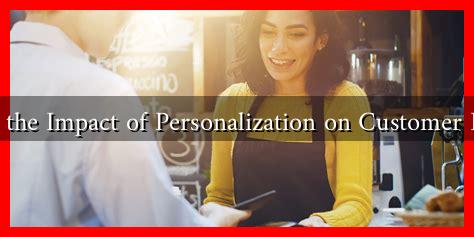-
Table of Contents
What is the Impact of Personalization on Customer Loyalty?
In today’s competitive marketplace, businesses are constantly seeking ways to differentiate themselves and foster customer loyalty. One of the most effective strategies is personalization. By tailoring experiences, products, and communications to individual preferences, companies can create deeper connections with their customers. This article explores the impact of personalization on customer loyalty, supported by relevant examples, case studies, and statistics.
The Importance of Personalization
Personalization refers to the practice of using data and insights to deliver tailored experiences to customers. This can include personalized recommendations, targeted marketing messages, and customized products. The importance of personalization in building customer loyalty cannot be overstated, as it directly influences customer satisfaction and engagement.
How Personalization Enhances Customer Loyalty
Personalization enhances customer loyalty in several key ways:
- Improved Customer Experience: Personalization creates a more enjoyable shopping experience. When customers feel understood and valued, they are more likely to return. For instance, Amazon’s recommendation engine suggests products based on previous purchases, making it easier for customers to find items they are likely to buy.
- Increased Engagement: Personalized content captures attention more effectively than generic messages. According to a study by Epsilon, 80% of consumers are more likely to make a purchase when brands offer personalized experiences.
- Stronger Emotional Connections: Personalization fosters emotional connections between brands and customers. When customers receive tailored communications, they feel a sense of belonging and loyalty. For example, Spotify’s “Discover Weekly” playlist curates music based on individual listening habits, creating a unique experience that keeps users engaged.
- Higher Customer Retention: Personalized experiences lead to higher retention rates. A report by McKinsey found that personalization can lead to a 10-30% increase in customer retention, which is crucial for long-term business success.
Case Studies: Successful Personalization Strategies
Several companies have successfully implemented personalization strategies that have significantly boosted customer loyalty:
- Netflix: Netflix uses sophisticated algorithms to analyze viewing habits and preferences, allowing it to recommend shows and movies tailored to individual users. This level of personalization has contributed to its high customer retention rate, with over 200 million subscribers worldwide.
- Sephora: Sephora’s Beauty Insider program offers personalized product recommendations and rewards based on customer purchase history. This approach not only enhances the shopping experience but also encourages repeat purchases, fostering brand loyalty.
- Starbucks: The Starbucks Rewards program personalizes offers and promotions based on customer preferences and purchase history. This strategy has resulted in a significant increase in customer engagement and loyalty, with over 25 million active members in the program.
Challenges of Personalization
While personalization offers numerous benefits, it also presents challenges that businesses must navigate:
- Data Privacy Concerns: With increasing scrutiny on data privacy, companies must ensure they handle customer data responsibly. Transparency about data usage is essential to maintain trust.
- Implementation Costs: Developing and maintaining personalized experiences can be resource-intensive. Businesses need to invest in technology and data analytics to effectively implement personalization strategies.
- Balancing Personalization and Automation: Striking the right balance between personalized interactions and automated processes can be challenging. Over-automation can lead to a lack of personal touch, which may alienate customers.
Conclusion
In conclusion, personalization plays a crucial role in enhancing customer loyalty. By creating tailored experiences that resonate with individual preferences, businesses can foster deeper connections with their customers, leading to increased satisfaction, engagement, and retention. While challenges exist, the potential rewards of effective personalization strategies are significant. Companies like Netflix, Sephora, and Starbucks exemplify how personalization can drive loyalty and ultimately contribute to long-term success. As the marketplace continues to evolve, businesses that prioritize personalization will likely stand out and thrive.
For further insights on personalization and its impact on customer loyalty, you can explore resources from Forbes.


